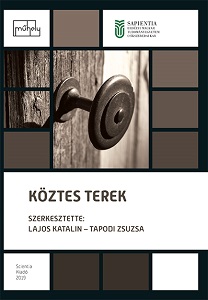
We kindly inform you that, as long as the subject affiliation of our 300.000+ articles is in progress, you might get unsufficient or no results on your third level or second level search. In this case, please broaden your search criteria.



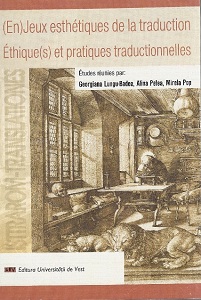
The author's primary aim in this article is to evoke Jauss’ aesthetics of reception in order to (re)situate the translator in what she calls the aesthetics of translation reception adjusted by the translator. To this purpose, Georgiana Lungu-Badea tries to distinguish direct reception (of the receptor-translator and the source-reader) from “indirect” reception (of the target-reader). From the perspective of various dichotomies, three- and four-parts classifications, the author identifies four types of entropic agreements – determined, more or less, by linguistic hospitality or by the desire to translate. These agreements inevitably influence the aesthetics (of betrayal/fidelity) of the translated work. In order to illustrate the essential role played by the translator in the process of reception, the aesthetic differences are illustrated by mentioning a number of Romanian translations.
More...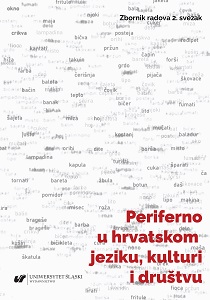
Free dictation still remains a neglected type of dictation in Croatian schools, although researchers of methodics pointed to its useful use in teaching the Croatian language back in the 1960s. Based on the results of a field research, this paper will show the possibility of a convenient use of free dictation exercises in teaching Croatian in secondary vocational schools related to the sectors of economy, trade and business administration (economist, business secretary, administrative referent, commercialist). The exercises were performed by reproducing the tone record. The results of the research point to the multiple usefulness of free dictation exercises in teaching Croatian in secondary schools in the economy, trade and business administration sector. It is suitable for correlation with the contents of a number of vocational subjects (Office Automation, Communication Technique, Computer Dactylography, Modern Communication in Economy, Administrative Procedure, Office Business and Correspondence, Secretarial Correspondence, Computer Dactylography with Office Practice). Additionally, it develops practical skills important to experts from this sector in carrying out their everyday activities and tasks, while due to the interdisciplinary and multimedia approach, it is also interesting to students, thus enabling a motivational effect.
More...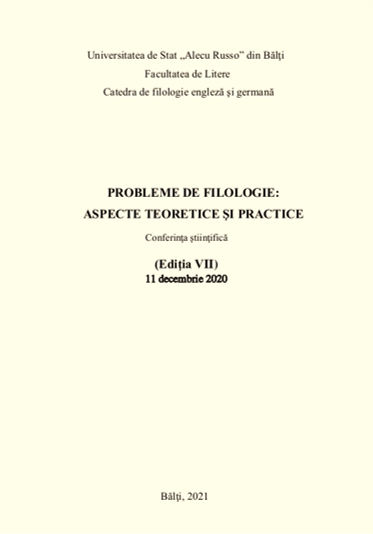
Every language bearer is a rotten culture, so the lingual expression in communication is an expression of national culture. Language serves culture, but it does not determine it. For translators, representing the stereotype of a nation for another culture is an extremely difficult task. The author focuses on the problems that arise during the translation of cultural specific elements (CIS) from English into Romanian or Russian. The aim of this study is to describe the different areas of cultural knowledge that contribute to the competence of the translator.
More...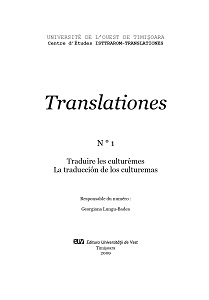
The purpose of this article is to give further details about the concept of cultureme (the culture-bound term or phrase), its definition and semantic field. The significance of this term in the theory of the cultureme and in the theory of linguistic transfer, in the sociology of culture and in sociolinguistics offers the opportunity to set the semantic limits of cultureme and to identify its significance in translation studies. The binary opposition cultureme-translation unit, cultureme-connotation, cultureme-neologism etc. is thought to be a powerful tool to elucidate the fundamental characteristic of the cultureme: monoculturality and its relative autonomy of translation. A classification of the culturemes is suggested to facilitate the translation process and to choose the most appropriate method of translation.
More...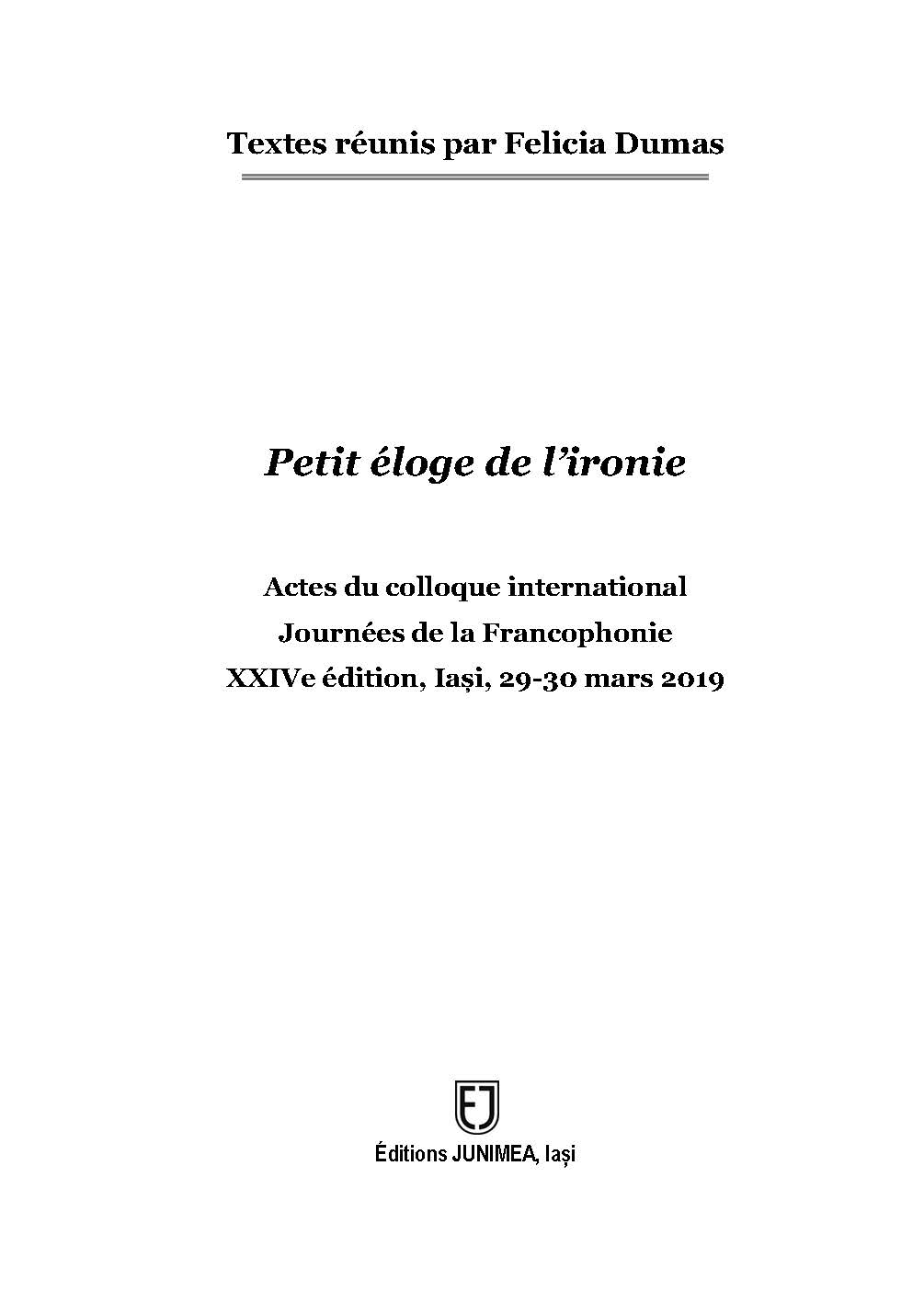
Our paper aims to analyse a more recent and rather paradoxical phenomenon shown in Western Europe i.e. the publication of Christian Orthodox books, written or translated in French from a traditional Orthodox Christian language. And, as an irony, in a profoundly laic and secularized culture, one can notice the development of an Orthodox Christian terminology as a consequence of translating books with Orthodox Christian matter. Another paradoxical aspect for a strongly secularized country that we aim to analyze is the fact that in France there are many important educational establishments and research centres which are representative for the entire Christian Orthodox world: “St. Serge” Orthodox Theological Institute, “St. Genevieve” Centre, “Dumitru Stăniloae” Scientific and Interdisciplinary Research Centre. Is this a paradox or irony of the Providence, of God eliminated from France during the French Revolution?
More...
Tudor Arghezi is a great poet who chose to put his talent at the service of translation too. He gave the fables of La Fontaine Romanian variants remarkable for the strength of the story and the humor. He considered the rhyme and the rhythm as very important poetic elements and translated the message of the French poet keeping the aesthetic form of the original. The dialogues of the translations are remarkable for their orality, their richness of images and their perfect adequation to the characters created by La Fontaine. He translated each fable as an entire poem and maintained the networks of meaning and images.
More...
The article examines the translation of cultural elements and changes that occur from language to language, from one culture to another. We will study strategies used by authors for translating cultural elements, in the hope of identifying the ideal strategy. In this presentation, we will refer to the cultureme as a unit of cultural information. To illustrate the aspects of cultureme and determine the context and circumstances for choosing an option of translation instead of another, we will examine « La Nuit Sacrée », the novel by Tahar Ben Jelloun, published in 1987, and of the two Arabic translations of this book, done in Egypt in 1988 and in 1993.
More...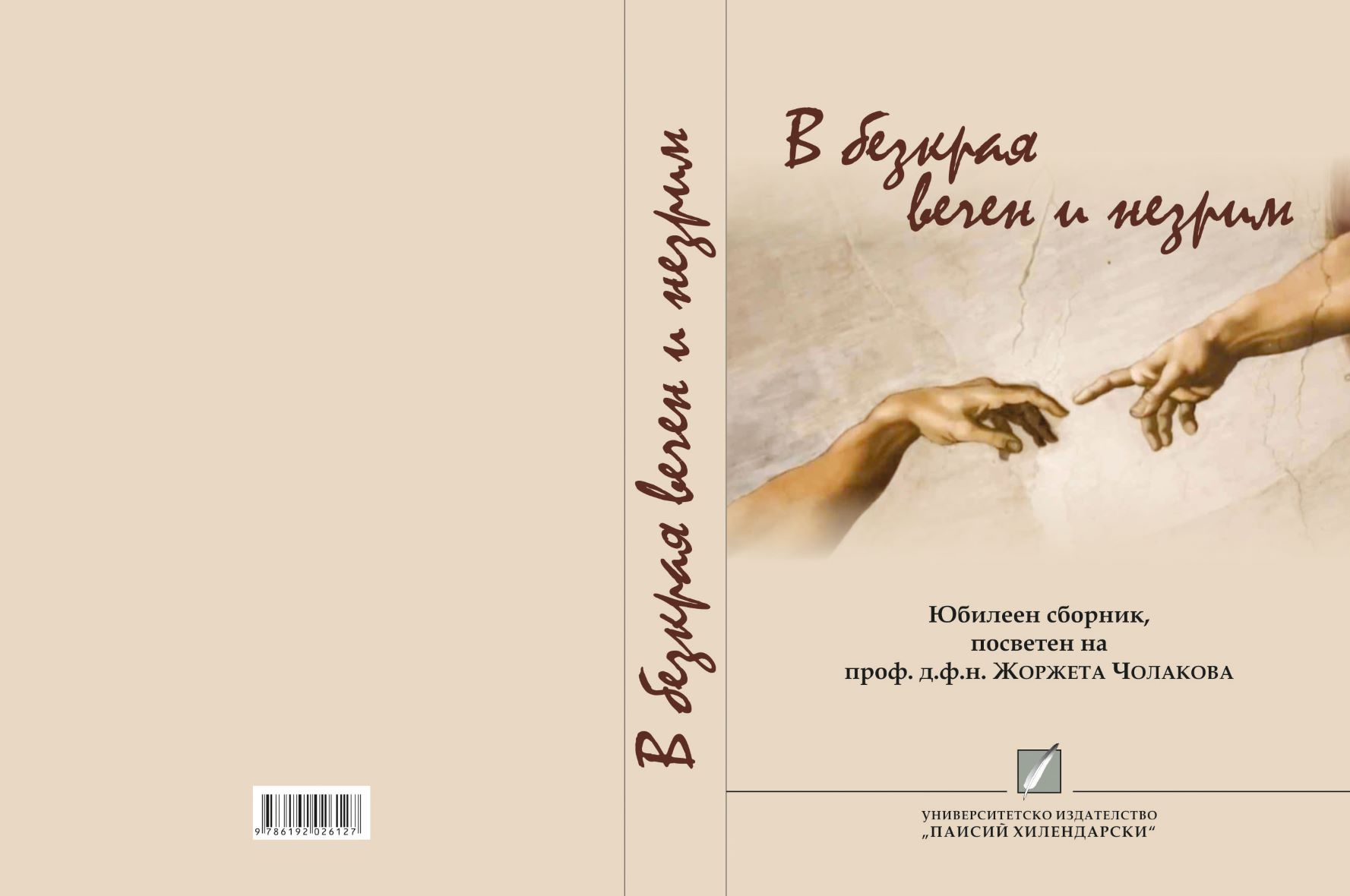
Two translation procedures from the 12th century are the subject of consideration in this critical essay: the way in which Anselm of Havelberg’s debates were translated in Constantinople in 1136 and the reading by Gerhoh of Reichersberg and his followers of the resolutions of the Synod of the Church in Constantinople in 1166. The aim of the analysis is to refute the widely held view that the nature of Latin translations in the 12th century was constantly the execution verbum pro verbo.
More...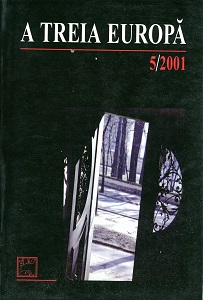
Investigations by: Âgoston Hugo, Anavi Âdâm, Balâzs Imre-Jôzsef, Biro Béla, Mircea Cărtărescu, Demény Péter, Paul Drumaru, Läng Zsolt, Mircea Martin, Carmen Mușat, Anamaria Pop, Ion Pop, Mircea Popa, Szilâgyi Julia, Szonda Szabolcs, Geo Șerban, Vallasek Jûlia, Daniel Vighi, Visky Andrâs.
More...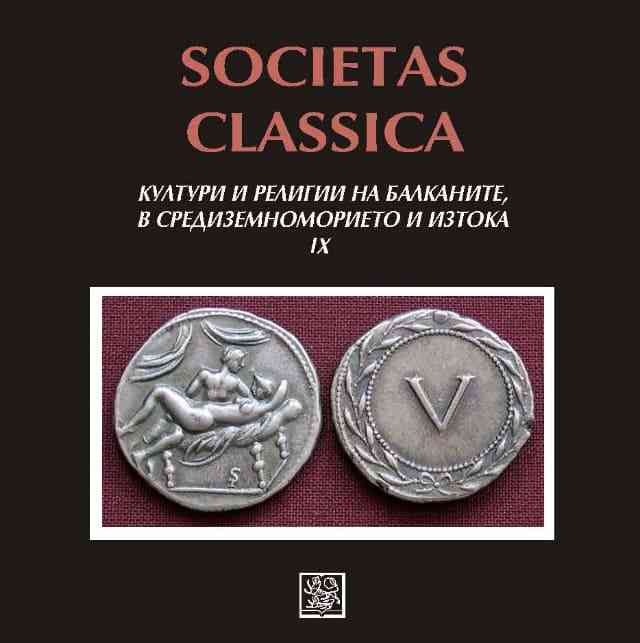
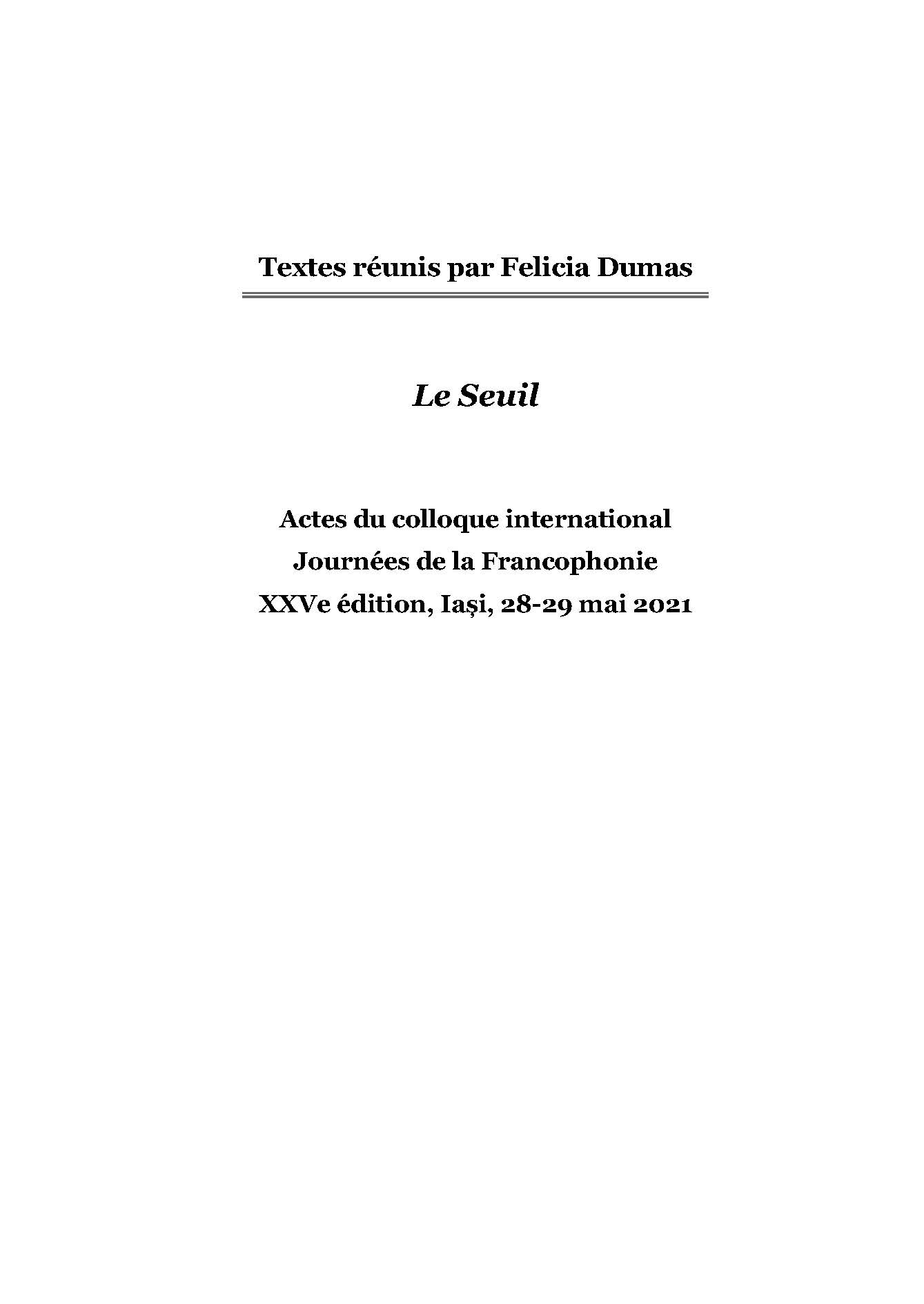
We aim to discuss in this article about the link between translation and linguistic stasis, more precisely for the Christian orthodox translations from French into Romanian. This type of linguistic stasis is present mainly in Romanian culture unlike other francophone western cultures. Therefore, the translator anxious to integrate into a tradition of translations of this kind is obliged to respect the lexical and cultural constraints of the language of arrival.
More...
The French poet Paul Verlaine belongs to classicism from the point of view of poetic form and to modernity from the point of view of semantic content. His poems question the created artistic universe, just as modern poetry does. His lines are noticed by order, rigor and symmetry. The poets Dimitrie Anghel and Șt. O. Iosif tried to translate them in such a way that their variant has on the Romanian reader the same effect as the original on the French reader.
More...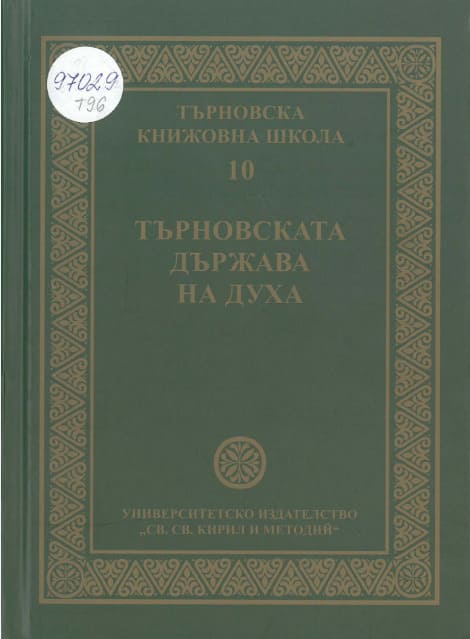
An abridged version of the Slavonic Scaliger Patericon is shown to be copied both from Cyrillic and Glagolitic antigraphs; the same circumstance is observed in the translations of the Scete Patericon and Athanasius of Alexandria’s Homilies Against the Arians. Twofold transmission makes it possible to contrast the features of copying from Glagolitic with those of copying from Cyrillic.
More...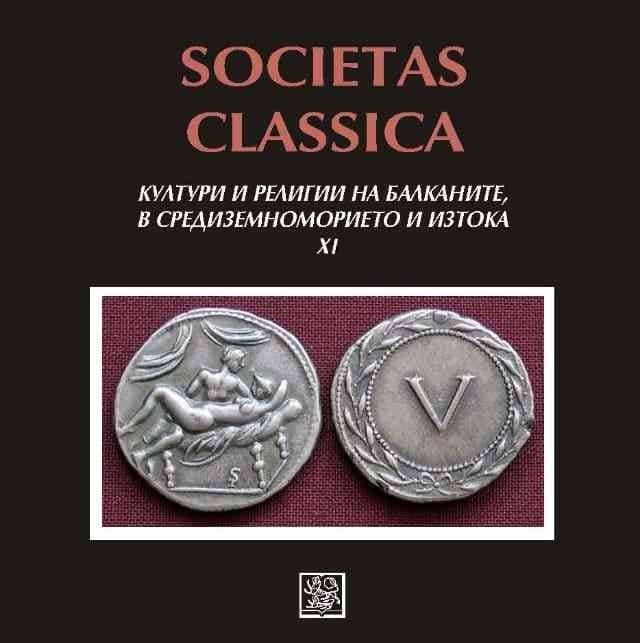
The aim of this paper is to investigate the use of the present participle as an object complement in English and its Macedonian translation equivalents. The research is conducted on a corpus of sentences excerpted from English and American literature and their Macedonian translation equivalents. The results show that the present participle as an object complement is translated into Macedonian mostly with 𝑘𝑎𝑘𝑜 – dependent clauses. However, there are also examples in which the present participle as an object complement is translated with relative clauses, da-clauses, clauses with a verbal adjective, clauses with a verbal adverb, clauses with a verb in Imperfect and temporal dependent clauses.
More...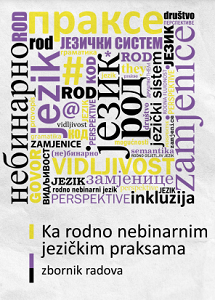
Zbornik radova Ka rodno nebinarnim jezičkim praksama rezultat je izlaganja na istoimenoj konferenci održanoj 22. 9. 2023. u Sarajevu, u organizaci Sarajevskog otvorenog centra. Zbornik sadrži: Predgovor (str. 2), koji je napisao jedan od urednika Zbornika – Matej Vrebac; Uvodni tekst: “Ka rodno nebinarnim jezičkim praksama” (str. 3–5), kojim nam se obraća Amar Bašić, također član Uredničkog tima; Prvi dio – Nevidljivost u jeziku (str. 7–15), koji čine tri rada, tri lične priče i intimne ispovedi: “Kako i zašto moramo inkluzivni_e u vrlo binarnom BHS jeziku” – Alex B; “Ko sam ja? Nevidljivost u jeziku znači nepostojanje” – Admir Alex Adilović; “Moje iskustvo sa jezikom kao bezrodna osoba u Bosni i Hercegovini” – Mušinović E.; Drugi dio – Lingvističke mogućnosti (str. 16–53), koji čine četiri rada lingvističke perspektive: “Od rodno (ne)osjetljivog ka rodno neutralnom (nebinarnom) jeziku u lingvističkoj bosnistici” – Amela Šehović; “Semantika imenica srednjeg roda u bosanskom jeziku” – Zenaida Karavdić; “Nomen est omen? – (Re)interpretaca rodnih označitelja kroz leće kognitivne lingvistike” – Emir Muhić; “Uporaba rodno nebinarnog jezika: (ne)mogućnosti u praksi” – Ivan Šunjić; Treći dio – Primjeri iz prakse, (str. 55–87), koji čine tri rada: “Perspektive rodno neutralnog jezika u Bosni i Hercegovini” – Amar Bašić; “Problemi pri prevođenju rodno neutralnog jezika sa njemačkog na bosanski/hrvatski/srpski jezik” – Džana Zahirović; “Kratki prikaz pisanja o temama vezanim za nebinarne osobe u Bosni i Hercegovini” – Jasmina Čaušević; Recenze (str. 89-92); O Sarajevskom otvorenom centru (str. 93).
More...
Zbornik Ka rodno nebinarnim jezičkim praksama nastao je na osnovu radova izloženih na istoimenoj konferenci održanoj u Sarajevu 22. 9. 2023. godine. Prvi ovakve vrste na području Bosne i Hercegovine, zbornik je okupio radove kojima se pokreće iznimno važna akademska i aktivistička rasprava o rodno nebinarnim i rodno neutralnim jezičkim praksama. Uz predgovor i uvodni tekst, zbornik sadrži radove, njih ukupno deset, podeljene u tri cjeline: Nevidljivost u jeziku, Lingvističke mogućnosti i Jezik u upotrebi.
More...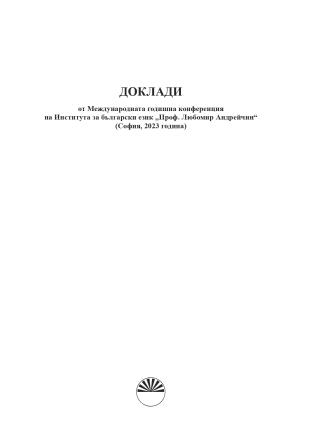
When studying Bulgarian as a foreign language, the main goal is to develop two types of skills: receptive and productive. The article describes some models and exercises for building and improving receptive skills (reading and listening) applied in the work with foreign students. The types of exercises that can be derived are: recognizing language elements; searching and analyzing information; transformation; production (of words, sentences, texts).
More...